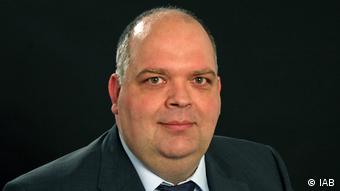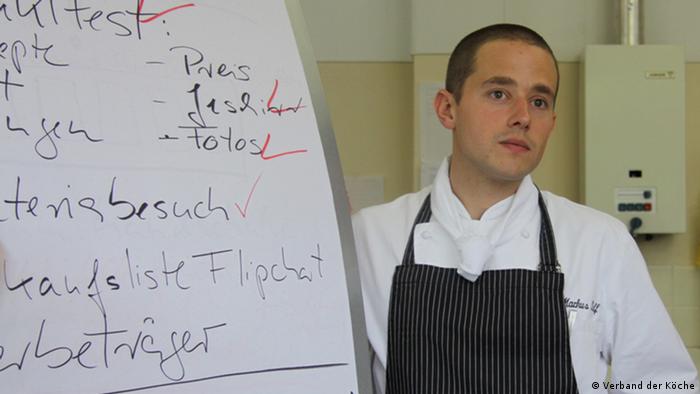Currently in Germany there are as many jobs as never before, and at the same time more than one Million jobs are still vacant. In contrast, the number of unemployed is still very high. How do they fit together?

The indicators for the German labour market matter for several superlatives. For example, in 1991 since the beginning of the overall German statistics have never been so many people on the payroll as at present: Approximately 43.7 million. This number, the Federal Statistical office published on Tuesday (16.05.2017) in Wiesbaden.
Exactly a week earlier, the IAB, the Institute for labour market and occupational research had reported, another record: it came to 1,064,000 in Germany are vacant. The had found the IAB, the research Institute of the Federal employment Agency, in a survey of almost 8000 employers in all industries. Also, those Vacancies have been counted, which had not been notified to the local employment agencies.
Fruit of the economic boom
These Figures do not come about by chance, says economist Alexander Kubis, the IAB, in an interview with DW. The German economy is benefiting from an upturn in the world economy and increasing domestic demand. The result is, Kubis, “we have been around for a while, a relatively strong growth in Employment. This structure generates of course also open. To other Places after a while to be filled also. There is then generated a need for replacement.”

The Institute for labour market and occupational research (IAB) is an institution of the Federal employment Agency.
But how can it be that a Million jobs are vacant, while – depending on the accounting and counting – nearly three million people are looking for a job? This phenomenon is observed not only in the labour market, but also in teaching. In your vet report, in 2017, the Federal government had stated in April that not all young people find a training place. Nevertheless, education Minister, Johanna Wanka, had come to the conclusion: “young people rarely had such good opportunities for an interesting training course as it is today.”
A fundamental change in the labour market
This apparent contradiction, Alexander Kubis declared for the labour market: “The labour market has changed completely in the last few years: We had a so-called employer’s market, that is, the enterprises could choose among a relatively large number of applicants.”

Alexander Kubis, the IAB in Nuremberg, Germany
The have reversed themselves now, but almost. In the meantime, less and less candidates would have more and more, now is more likely to be job seekers or apprentices could pick and choose which offer you want to accept.
That supply and demand are both in the teaching as in the case of the work in the line, it is called Minister of Wanke a “fit problem”. The offers made by the employer, did not fit to the ideas of the young people in relation to their professional future.
Now is the shortage of skilled workers?
For years, many representatives of German business to paint the picture of a shortage of skilled workers in Germany on the wall. But Alexander Kubis, the Figures, obtained by the IAB is not able to read out: “We currently have 100 Vacancies 260 unemployed. This figure shows that we have without a shortage of skilled workers in Germany. However, we have in each of the regions and professional groups shortages.”
The study shows that in some industries, hardly any workers will be looking for – the relates to, among other things, agriculture and forestry. In other areas, but demand is still very high: many Vacancies currently exist in the logistics and warehousing. Also, the construction sector and many service providers are still looking for work forces, for example, for the health and care professions.
A shortage of skilled workers, Kubis, he would make “other points”. It was probably more like a operating today must look longer than they used to, until he finds a suitable worker: “We see that the occupation duration – the time need the companies to fill their open position ready – for the Moment, at 82 days. This is significantly longer than, for example, in 2010, where the companies took 70 days.”

Dual training in Germany – Also for cooks: will be Learned at the stove and in the school.
Good training is needed
A criterion in Alexander Kubis, but a reason, a closer look: the quality of education: “We see that the qualification occupies an ever-greater role in the appointments. Especially in the case of the non-academic professional fields.”
In the case of the Million free Make the businesses accept only for every fifth point, a candidate who has no qualifications. For 64 per cent of Vacancies, a work seeker in possession of a completed vocational education and training, and for 16 percent of the Jobs even with a University degree have been completed.
And anyway, Kubis, it was important that “the education is a good education, and this requires that the education is good”. The same Horn is also education Minister, Johanna Wanka, the complains but at the same time, the number of farms, the form itself disappears.
Thus, according to the Minister, whether the dual training system, which has a long Tradition in Germany, particularly important. In the past year, the government in Berlin has unveiled called an Info-campaign on the social importance of some of the Hundreds of training. Young people should realize that a dual training system, “a wide range of career and development opportunities,” is open and a good Alternative to University studies.

Good education benefits and protects, for example, against unemployment: vocational students in the Seminar, a University of applied Sciences
Other ways
Nearly three million unemployed and more than a Million Vacancies – for national scientists Kubis not host match these Numbers, you are also a good sign: “The labour market works relatively well in Germany.”
There is some evidence that the two indicators complement each other because “most of the Places can be filled in, as a rule, after a certain time, it just takes much longer.”
It was, however, Kube, not a self-runner. Job seekers should always pay attention to a good education and the establishments in turn have to “provide attractive jobs available”. And in particular, companies and Employees should look “wider. You should not rely only on personal contacts, the home page or magazine ads. You also have to pursue other avenues in order to be successful in the future on the labour market.”